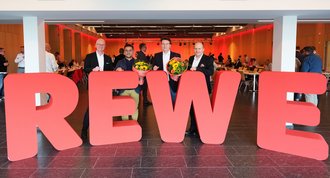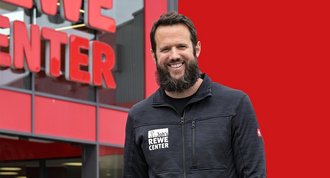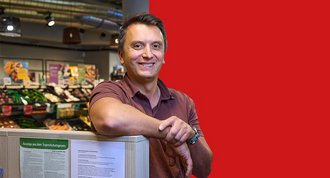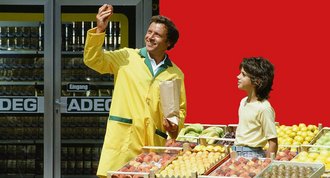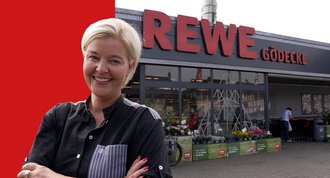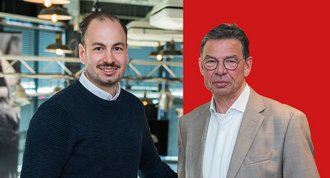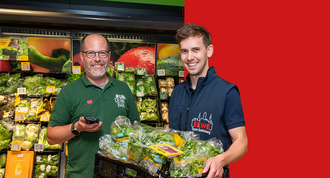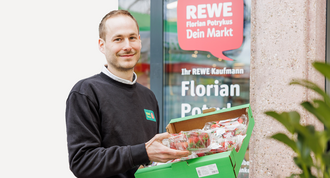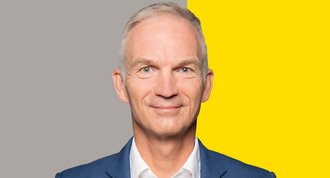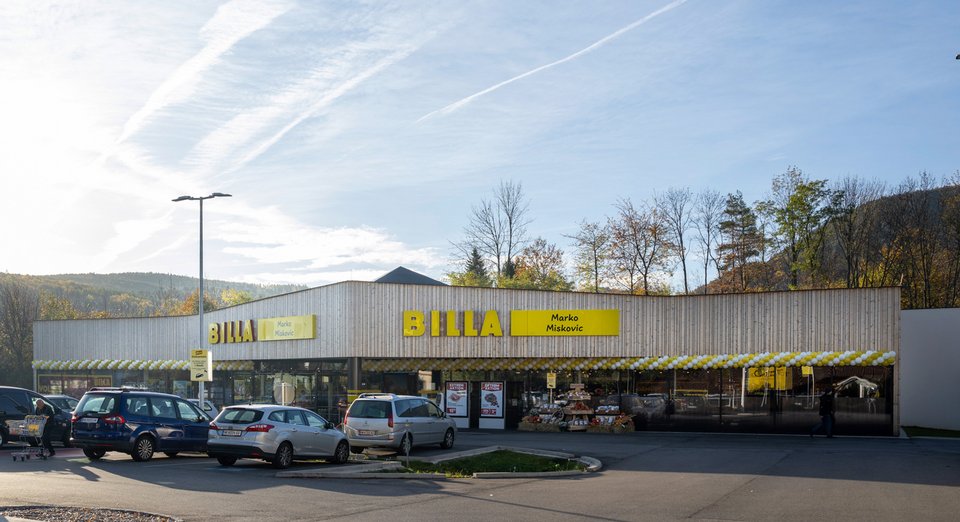
It's a milestone in the company's history: the BILLA sales assistant model has been launched in Austria. What expectations are attached to this step? One spoke to REWE Group Supervisory Board Chairman Erich Stockhausen and Divisional Director Thomas Nonn about this.
On 27 October, the first BILLA store in Austria to be run by a merchant and BILLA as a joint venture opened. Merchant Marko Miskovic from Gloggnitz in Lower Austria did not remain alone for long, as the second and third BILLA stores opened their doors in Burgenland and the Austrian capital shortly afterwards: the stores of the newly minted BILLA retailers Thomas Wojteckovsky and Sadik Demir are located in Pöttsching in Burgenland and at Hauptstraße 30 in Vienna's 14th district.
The opening of the BILLA store in Gloggnitz also marked the launch of the BILLA retailer model. The company is thus expanding its portfolio - in addition to the classic BILLA and BILLA PLUS stores, one hundred BILLA retailers are to be established by 2026. The Austrian partnership model was created on the basis of REWE Group's experience, know-how and expertise.
Strong support for retailers to secure regional infrastructure
Entrepreneurship and retailers have always been deeply rooted in REWE Group's DNA: REWE's retailer model is considered a model of success in Germany. In Austria, the ADEG stores are also run by retailers. The step of having BILLA stores in Austria operated by independent retailers - similar to REWE in Germany - is a milestone.
The BILLA merchant model offers strong backing and support from the organisation. This creates new, attractive opportunities for aspiring retailers, ensures the long-term security of the local infrastructure and spreads the commercial tradition even further in Austria.
Entrepreneurial behaviour, maximum proximity to customers, an awareness of the region and its people as well as their personal signature characterise retailers and make markets run by them special and economically successful. Alongside the development of an omni-channel model, this form of retail is probably the most important growth factor in European retail.
Is the establishment of the merchant model based on the REWE example conceivable in other European countries besides Austria? one spoke to the Chairman of the Supervisory Board of REWE Group, Erich Stockhausen.
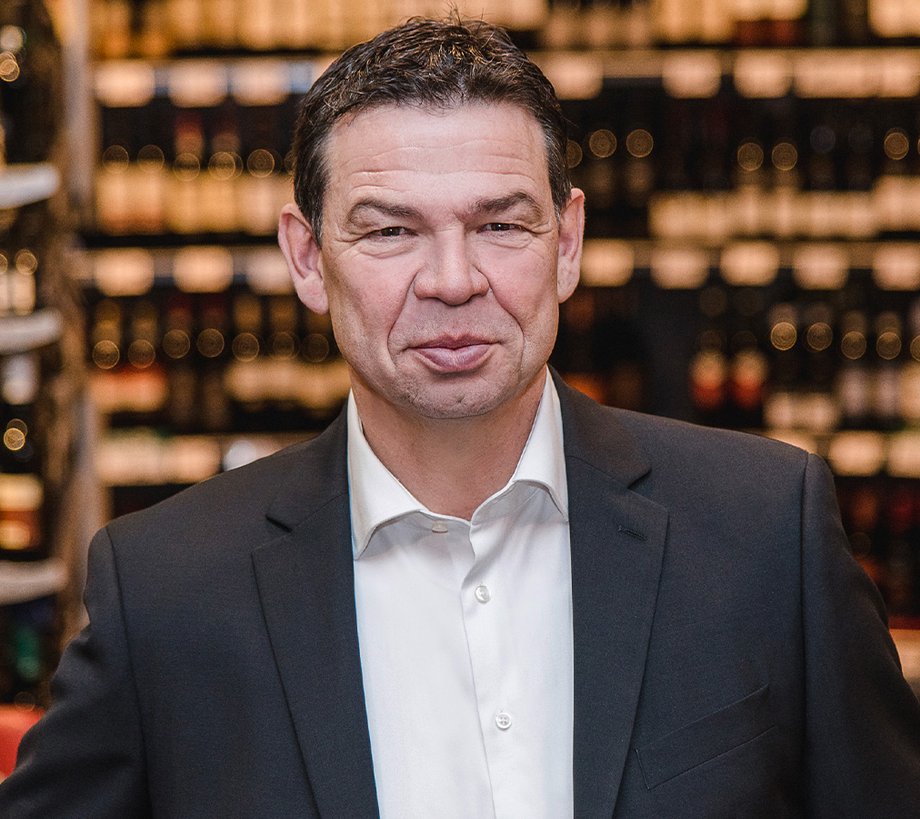 Erich Stockhausen
one: Will the BILLA retailer model continue the success story of independent REWE retailers?
Erich Stockhausen
one: Will the BILLA retailer model continue the success story of independent REWE retailers?
Erich Stockhausen: In Germany, we see a very robust business for REWE retailers in the long term. Why shouldn't we try to continue this success story in other countries? In Austria, the market was ripe for a merchant model. It is important not to simply copy the REWE model, but to tailor the business model to the specific characteristics of the respective country, as was done in Austria. As a merchant, I am therefore very positive about this development.
one: In other words, it would be quite conceivable to establish a retailers model in other countries in addition to Austria?
Erich Stockhausen: Yes, absolutely. If we are active in a country, we should utilise every opportunity to achieve a significant market position. Of course, the market in the respective country must be ready for this. And very importantly, the political framework must also be right.
one: What are the political framework conditions?
Erich Stockhausen: The basic prerequisite is first and foremost a democratic system in the respective country. The example of Russia has shown how quickly companies can be forced to pull out - and suffer huge losses as a result.
one: The retailers run the stores together with BILLA in a joint company. What are the advantages of this type of independence?
Erich Stockhausen: On the one hand, we have the freedom to operate successfully as an entrepreneur. On the other hand, we help with the system benefits of the co-operative. The system provides the framework conditions to be able to operate successfully in the market.
one: Do BILLA's new retailers in Austria also benefit from the systemic support?
Erich Stockhausen: From a customer perspective and in terms of the idea, it goes in the same direction. The approach is similar, and we don't close ourselves off. If someone wants to take a full risk and finance everything themselves, they can do so. In the end, it's similar to Germany, only some parameters have been readjusted. The success story in Germany speaks for itself.
one: Especially when you look back over the last 10 or 20 years, you realise that what has developed there has been brilliant.
Erich Stockhausen: One example is the south-west region. We privatised the first REWE store there in 2001. Since then, everything has developed rapidly. You have to drive it forward, but you can't overrun anything. The mentality has to grow with it. Here, the courage to engage in dialogue has always led to fruitful results. Many young people today say: We would rather privatise with REWE than with others. Our models are simply better and make it easier to become self-employed, for example with risk equalisation. It starts with the allocation of stores: There are clear guidelines here that prevent applicants from being disadvantaged. At REWE, we have a different approach to the competition; we treat each other fairly. The chances of success prove us legal. We have a huge success rate of almost 100 per cent.
The independence with REWE has to work so well that it advertises itself and people come to us. Today, we have several applicants for most stores, so we can choose the best ones. The high level of satisfaction among retailers is the best confirmation that we are on the right track.
one: Do we need regional co-operatives in Austria, similar to those in Germany?
Erich Stockhausen: Up to 500 retailers are organised in today's regional cooperatives. In my opinion, we can therefore start with an eG. Later, we could then supply other countries with co-operatives and integrate them into the overall system. If the retailers are successful, then it will grow.
one: Apart from the advantages of the cooperative system, how would you characterise REWE Group's current culture?
Erich Stockhausen: I see REWE as a family and a community of values. We have a very constructive approach in the Group today. Together with the Management Board, Supervisory Board and Works Council, we consider how we can best implement things. It's a great situation. We are well positioned, have our backs free and can continue to develop. We have people in the company who have been with us for many years and who make a strong contribution to our overall development. I think that's great, and it's fun. The aim of everything we do is to ensure that our REWE creates a secure, existential basis for the next generation. Of course, this also applies to all other areas of the Group. These also need to be developed further. Our goal is to have motivated employees everywhere.
One of these players is Thomas Nonn. There is probably no one in the REWE Group who knows as much about the co-operative system as he does. one spoke to the Divisional Director for Self-Employment and Co-operatives about what he expects from the establishment of the BILLA merchant model.
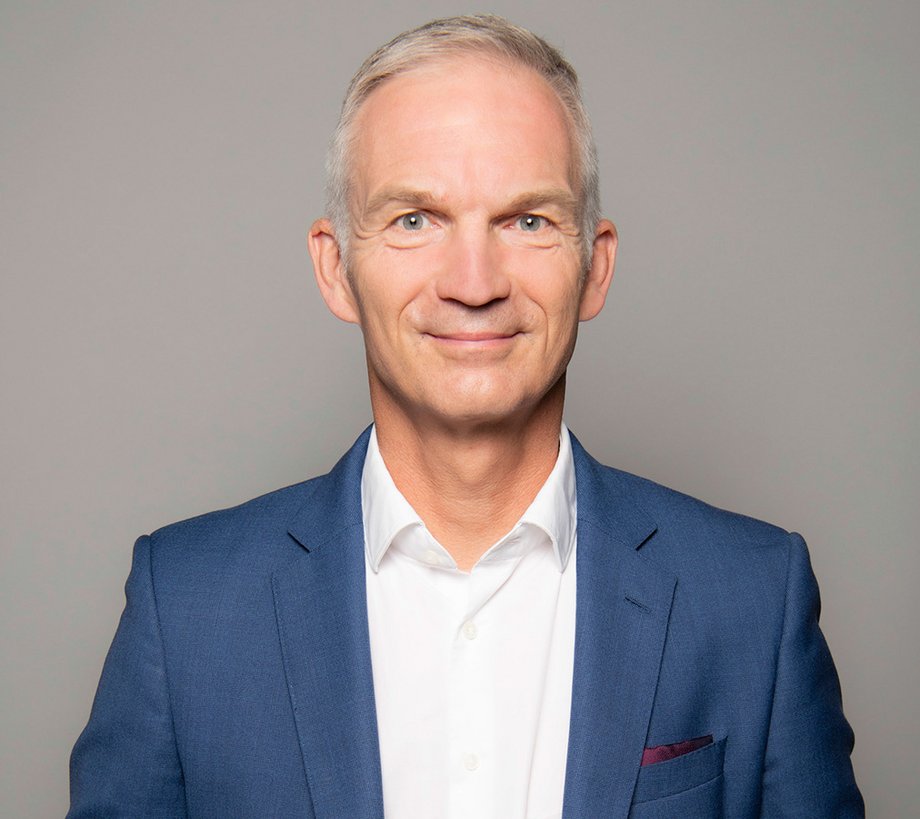 Thomas Nonn
one: What expectations do you have for the establishment of the BILLA merchant model in Austria?
Thomas Nonn
one: What expectations do you have for the establishment of the BILLA merchant model in Austria?
Thomas Nonn: The step in Austria of having BILLA stores operated by independent retailers, similar to REWE in Germany, is a big step for the entire BILLA organisation. We expect an even better performance at the individual locations thanks to the entrepreneurial retailers, as we have known from Germany for many years as a success factor. Establishing self-employment at BILLA in Austria is, of course, also in line with REWE's history of promoting self-employment, but above all we also expect the entrepreneurial potential of retailers to help BILLA stores better utilise their potential.
one: How will the future BILLA retailers be trained? Is there an academy, similar to REWE, or is this in the pipeline?
Thomas Nonn: In Austria, we can benefit from the experience gained in Germany and will establish as many elements as possible in Austria. This also includes a corresponding training structure for retailers, which will gradually develop. Our colleagues at BILLA have already successfully created such structures for the first retailers and there are clear ideas for their development. Sound preparation for self-employment is one of the most important factors for a successful future for retailers.
We also recently spoke to Thomas Nonn about why co-operatives are more relevant today than ever before.
Part 2 of our mini-series on the BILLA merchant model will be published in one on 25 January. In it, Brian Beck, Management Board member of the newly created "Wholesale and Retailers" department at BILLA, explains the goals he has set for the retailers model and how he, together with his team, wants to continue to spread the commercial tradition in Austria. In addition, the first BILLA merchant, Marko Miskovic, describes the advantages that self-employment offers him.


